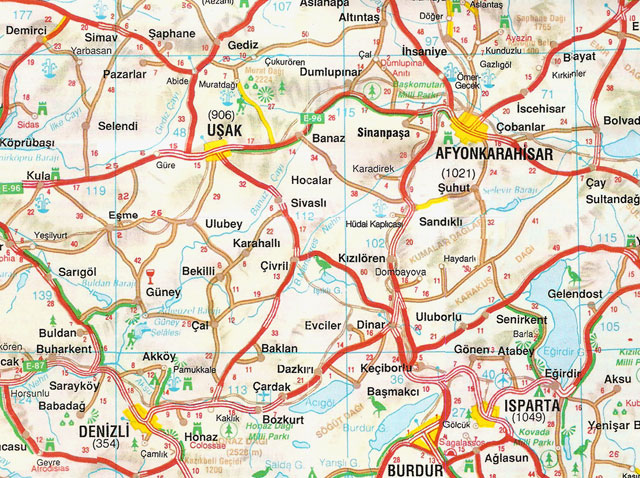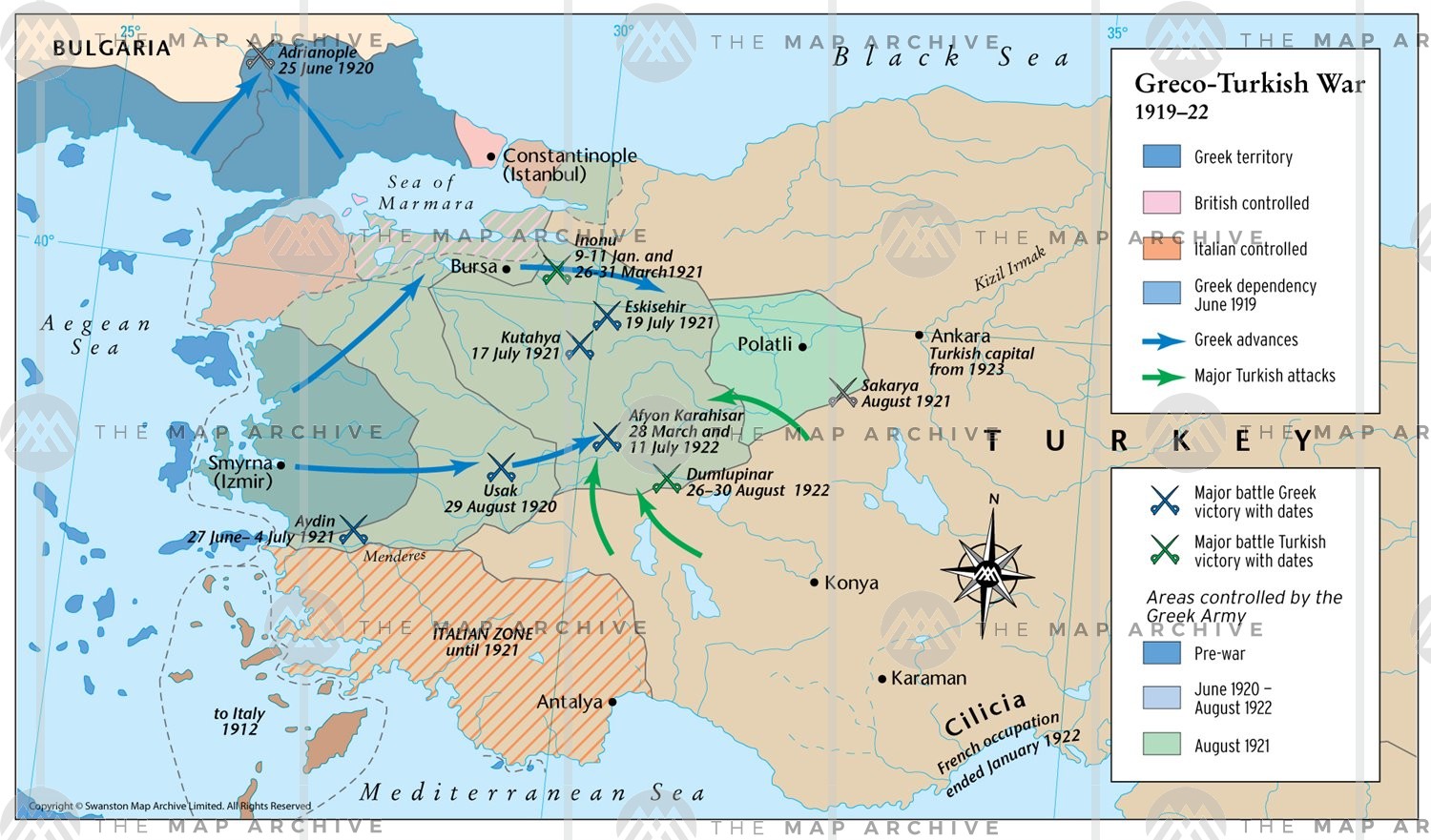Afyonkarahisar, escaped, but was recaptured and force-
marched to Uşak. He was transported to Izmir but does
not relate any details beyond that.//

The statement of Mehmed, son of Osman, of (Afyon)Karahisar
I was taken prisoner in Çatalçeşme near (Afyon)Karahisar on
27 March
1921. 40 members of our company
and 50 people from Çatalçeşme
village were made prisoners. We were left in İnas village under the
supervision of 25 bayonet-wielding guards.
At about 4 o’clock in the
morning, the guards were asleep and there was
a Greek camel brigade
near us so, risking death, I took a sack of straw from
the brigade and
escaped.
I reached Sesek
vilage. I wanted to get to my own army’s
location but
they wouldn’t leave me alone.
I pretended that I wanted to bring the
straw to my animals and they said
that they would be going to my village
tomorrow. But I didn’t go to the village. Thinking that there might be
soldiers there, I sat in a ditch alongside the road all
night. Early in the
morning I saw a
fellow from one of the surrounding villages and I asked
him for a ride to
Karahisar in his horse cart. He agreed
and I changed my
clothes before arriving in Karahisar.
After spending a time in my home there, a
Jewish enemy who knew me
and had seen me with my commander informed on me and I
was seized.
The Greeks said I was an
officer but I denied this. Nevertheless,
they held
me there for a while, along with 470 others. Toward evening they forced
us to march,
hungry and thirsty. We were barefooted
and without clothes
because they had taken all our belongings and sold them to
the local
populace. Along this horrific
journey there were 15 people whose
strength gave out an they were bayonetted to
death by the guards or
beaten so badly they couldn’t continue.

Afyonkarahisar is about at the eastern extent of the red Greek
area. This POW was captured while the Second Battle of
İnönü was underway at İnönü, further to the north (23 March-
1 April 1921), just west of Eskişehir.
We walked for 18 hours over 3 days to Uşak,
where the central
commander put a gun to my chest and made me swear to tell the
truth.
I was asked how many cannons our
army has, how many machine guns,
how many soldiers and how many weapons. I claimed I wasn’t a soldier
and pointed out
that I had been seized by them in my home.
I told them
I had no connection to the military at all. They didn’t believe me and
inflicted 150
lashes on me. The commander got carried
away to the point
that he kicked my arm, which even now is still maimed.
After being beaten I was imprisoned in a
toilet for 7 days and the
commander, in his greed, even took my 32 liras. They even took cigarette
papers. I was given no food or water while I was
imprisoned but they
poured buckets of water on me during the nights. After these 7 days they
brought me to a mosque, where they again accused me of lying and put
me in front of a firing squad. I was given a reprieve but
transported to
Izmir, where I was seized by the Gendarmerie because word had
been
passed to them that I was an officer. I was given no bread and only got
something to eat by begging for
it. I had previously been taken prisoner
by the English, but this was far worse.

Question: Do you know the names of those who were killed by bayonet
while on the road?
Answer: No, I don’t know because they said they had come from
Ankara.
I only knew them as Ahmet and
Mehmet. I don’t know their hometowns
or their personal particulars.
Q: Will you sign your statement?
A: I sign my statement.
Police officer M.
Celaluddin (statement-taker)
Mehmet, owner of the statement
//END of PART VIII//

Hiç yorum yok:
Yorum Gönder